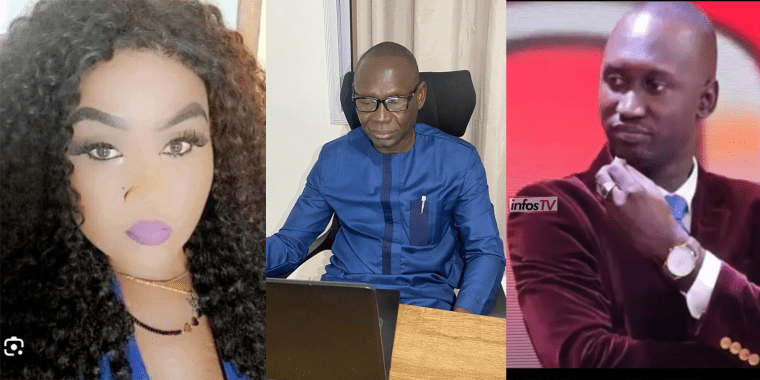New York, June 22, 2023—Senegalese authorities should release journalist Ndèye Maty Niang, also known as Maty Sarr Niang, halt the prosecutions against Pape Ndiaye and Serigne Saliou Gueye, and drop the restrictions placed on the two journalists following their release, the Committee to Protect Journalists said Thursday.
Authorities arrested Gueye, publication director of the privately owned newspaper Yoor-Yoor, on May 23 and released him on Tuesday, June 20, according to the news website Dakaractu and the journalists’ lawyer Moussa Sarr, who communicated with CPJ via messaging app.
Ndiaye, a reporter with the privately owned broadcaster Walf TV, was held since March and also granted release on Tuesday; he left prison on Wednesday.
Under the conditions of their provisional release, Ndiaye and Gueye are required to report to the prosecutor’s office on the first Friday of each month, inform the judge of any change of address, and are prohibited from leaving the country without permission or communicating about their case, Sarr said.
As of Thursday, June 22, Niang, who reports on local politics for the privately owned website Kéwoulo, remained in detention without a scheduled court date.
“Authorities in Senegal must release journalist Maty Sarr Niang and drop their prosecution of recently released journalists Pape Ndiaye and Serigne Saliou Gueye, as well as the onerous restrictions placed on them,” said Angela Quintal, CPJ’s Africa program coordinator. “Unfortunately, Senegal is trampling on its reputation as a stable democracy committed to press freedom. Journalists should be safe to report on matters of public interest without fearing arrest or harassment.”
On May 16, officers with Urban Security, a unit dedicated to judicial investigations, arrested Niang at her home in the capital city of Dakar, according to news reports and Sarr.
An investigating judge charged Niang on May 24 with “acts and maneuvers likely to undermine public security, [and] usurping the function of a journalist” connected to her work for Kéwoulo, according to Sarr.
Kéwoulo director Babacar Touré told CPJ by phone that the journalist’s arrest was connected to her reporting, as well as criticism of Senegalese authorities in personal Facebook posts. “Every journalist who is not in their camp, they try everything to arrest you,” Touré said. “The thing is to put fear on us.”
Under section 80 of Senegal’s penal code, which CPJ reviewed, “maneuvers and acts of a nature to compromise public security or to cause serious political unrest” is punishable with up to five years in prison and a maximum fine of 1.5 million West African francs (US$ 2,500).
Ndiaye was jailed on six charges, including “spreading false news” in March 2023. He was held in Sebikotane prison until the day after his release was granted because the prison received the release decision late, Sarr told CPJ.
Urban Security officers arrested Gueye on May 23 after he responded to a summons, according to another of Gueye’s lawyers, Cheikh Ndiaye, and Yoor Yoor accounting assistant Marietou Beye, whom both communicated with CPJ via messaging app. A prosecutor accused Gueye of usurping the function of a journalist because he did not have a national press card and of contempt of court over a May 15 article.
The May 15 article was published by Yoor Yoor under an anonymous byline with the title “Dear fellow magistrates, let’s pull ourselves together!” and critiqued the prosecution of opposition leader Ousmane Sonko. On June 1, a Senegalese court sentenced Sonko to two years in prison for corrupting youth; he is appealing the decision, but the sentencing may prevent him from running in Senegal’s 2024 presidential election.
Gueye was released from Rebeuss prison in Dakar on Tuesday, June 20, Sarr told CPJ.
CPJ’s calls to Senegalese Minister of Interior Antoine Diome and Minister of Justice Ismaila Madior Fall went unanswered.
[Editors’ note: The spelling of Kéwoulo has been corrected throughout this article.]
